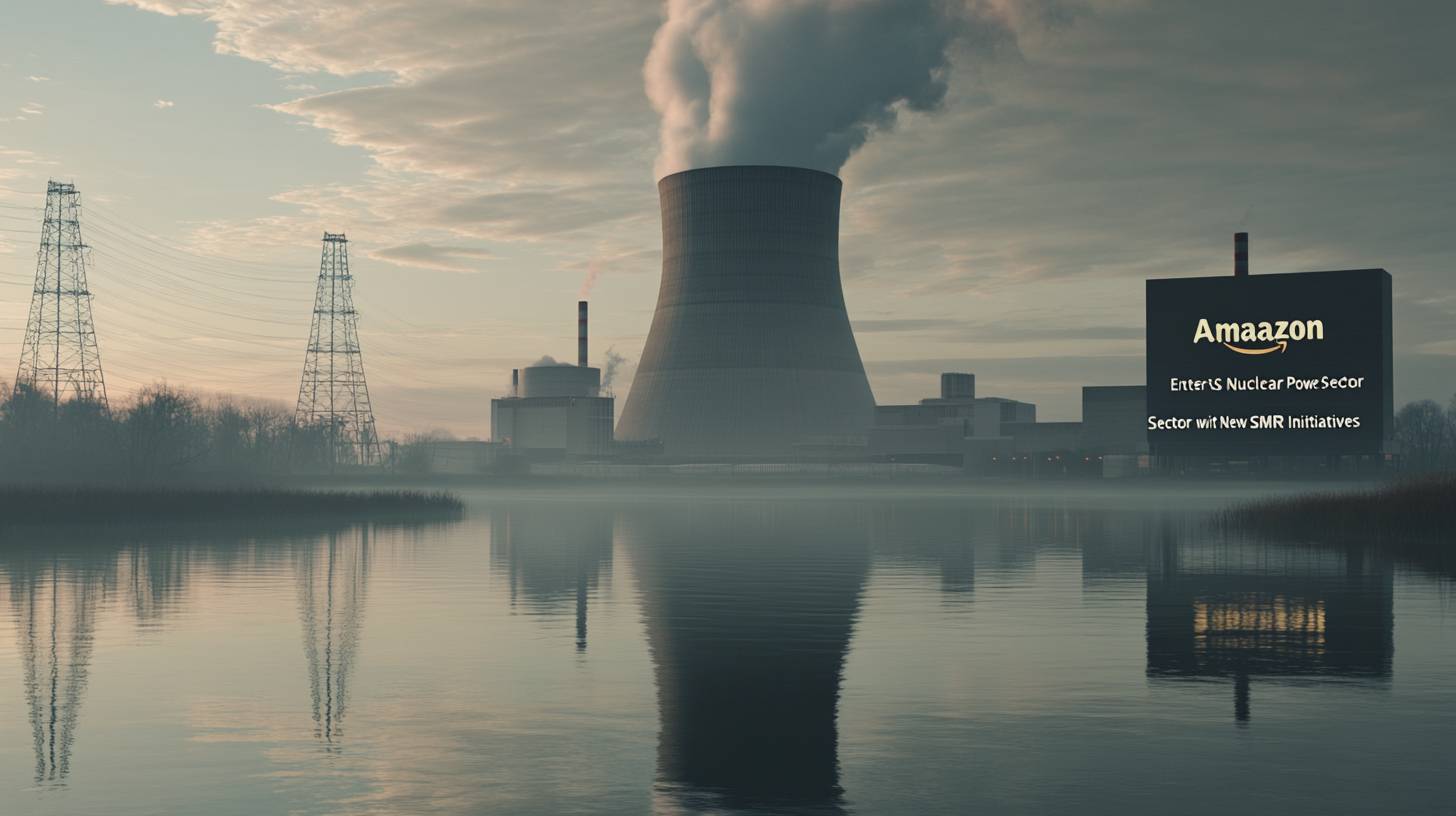
Amazon’s dedication to nuclear power for data centers
Amazon has taken a bold step by dedicating itself to nuclear power as part of its approach to energize its data centers within the US. The technology leader has formed agreements aimed at fostering the advancement of nuclear power initiatives, particularly concentrating on Small Modular Reactors (SMRs). This choice corresponds with Amazon’s extensive sustainability objectives, as the firm aims to lessen its carbon emissions while accommodating the increasing energy needs of its international data center activities.
Through investment in nuclear power, Amazon is positioning itself to obtain a more dependable and stable energy supply, essential for the seamless function of its cloud computing services. The transition towards nuclear energy also represents the growing pressure on technology firms to implement cleaner energy alternatives, particularly as data centers are recognized for their high energy demands. This action may decrease Amazon’s dependence on conventional fossil fuels, while also acting as a safeguard against potential energy price fluctuations in the future.
Amazon’s pledge to nuclear energy is part of a larger trend, following similar efforts by other tech behemoths like Microsoft and Google. Nevertheless, Amazon’s size and market influence render this an especially significant event, potentially expediting the embrace of nuclear power throughout the tech industry.
The growth of small modular reactors in major tech
Small Modular Reactors (SMRs) are surfacing as a vital option for large tech firms aiming to fulfill their energy requirements while minimizing their ecological footprint. Distinct from conventional nuclear reactors, SMRs are crafted to be more versatile, scalable, and cost-efficient. These reactors are compact, allowing for more straightforward integration into existing energy networks. Moreover, SMRs incorporate enhanced safety measures, such as passive cooling systems that lower the risk of overheating, making them a favorable choice for enterprises concerned with operational safety.
For technology giants like Amazon, Microsoft, and Google, the attraction of SMRs is their capability to deliver a stable and consistent energy supply, crucial for data centers that demand continuous uptime. Data centers are infamous for their substantial energy use, and as the desire for cloud solutions continues to escalate, so too does the urge for sustainable energy alternatives. SMRs could prove to be a lasting solution to this issue, presenting a low-carbon substitute to fossil fuels while avoiding the reliability challenges linked with renewable energy sources such as wind and solar.
Beyond their environmental advantages, SMRs might also yield economic benefits. The modular design of these reactors facilitates quicker construction intervals and lower initial capital expenditures compared to traditional nuclear facilities. This could render them a more appealing investment for firms seeking to broaden their energy portfolios. Additionally, as the regulatory landscape surrounding nuclear energy matures, the prospect of governmental incentives and subsidies could further boost the financial attractiveness of SMR initiatives.
As an increasing number of tech companies investigate nuclear energy, the evolution of SMRs may be crucial in determining the future landscape of the energy market. With Amazon, Microsoft, and Google at the forefront, the embrace of SMRs could quicken, potentially leading to reduced costs and greater access to nuclear energy for other sectors. This transition could also hold wider ramifications for the energy industry, as a heightened demand for SMRs might stimulate innovation and investment in nuclear technologies, thereby reinforcing its position in the global energy shift.

